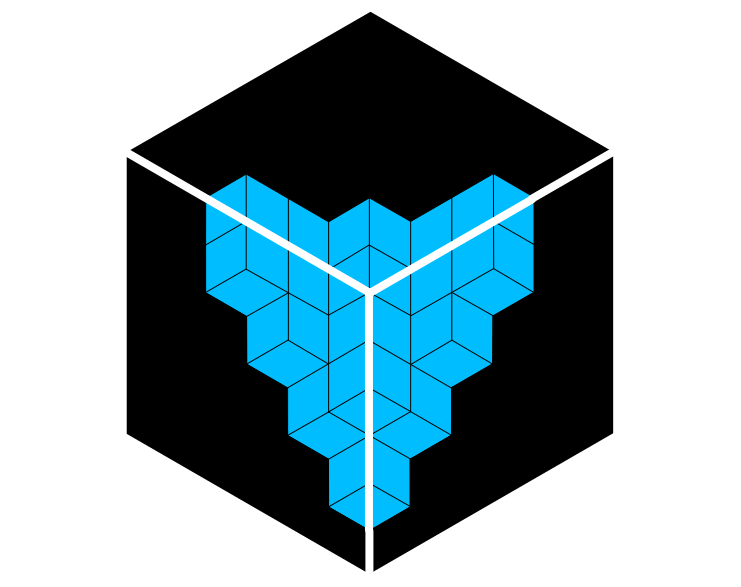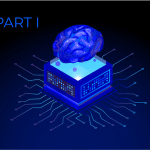Artificial Intelligence – future perspectives and drivers – II
Author: Winona Fischer
Estimated reading time: 7 min
Tired of reading? Let our lovely AI Amy read it for you:
A quick recap
In our last blog article we have been looking at some of the most important considerations regarding AI and machine learning in the context of its history, development and recent success stories of AI startups in particular. We have seen that the big tech Giants are foreseeing immense potential in this area and are spending billions of dollars to acquire startups in the AI scene in order to stay competitive in their markets in the long run. In a second part of this blog, we would like to raise attention to the impacts and consequences AI based technologies will have on our private and professional lives in general. Some people even project that AI impacts will be bigger than any other technological impacts we have had in the last two decades, for instance the smartphone. Taking the multiple dimensions of consequences in the business sector, but also in the private sector into account, the emphasis of this article in more particular will be the on the consequences of Automatization, Impacts of AI in global health care systems, impacts of conversational AI and in private homes.
Automation of Jobs
Many businesses are afraid of the disruptive potential AI in combination with Automation might have on their businesses. When aspects of AI such as machine learning abilities are combined with robotic process automation then we are talking about intelligent process automation (IPA). This is a quite powerful tool because it can combine the different advantages of Automation and AI. First of all it can increase the speed and efficiency, thus it can safe time. And secondly it still provides AI insights and enables the flexibility and processing power of it as well (1).
Because of these reasons it really does have the potential to threat jobs and business of today. For instance many forecast are estimating that roughly about 47% of jobs in the United States are at a high risk to be replaced by automation driven technologies based on AI (2).
There is is rapid progress running with these technologies which even goes further than the traditional industrial automation. Starting with the rise of autonomous driving on the roads, which can definitely affect many jobs in a long run, up to automated checkout systems in supermarkets and other retail stores. Another important area which is highly affected by AI disruption are many jobs in the telecommunication industries, such as call centers and other services via phone, even sales activities. Hereby the development of conversational AI, which will further be elaborated on later in this blog article, already has and will continue to have a much stronger power to substitute people working in these areas. AI based technologies will easily be able to talk to customers in order to help them out with some question due to natural language processing abilities. Additionally as already mentioned in the first AI article on this blog HR interviews and other related processes like onboardings will be accompanied by AI assistants in the future.
Despite the fact that AI and automation technologies can also help to lift the global economy and push a productivity growth, the questions of major disruptions of work is still in a great focus.
In a report by the McKinsey Global Institute from 2018 predictions were made that roughly half of the activities performed by workers could potentially be automated (3).
Furthermore they predicted that “15 percent of the global workforce, or about 400 million workers, could be displaced by automation in the period of 2016-2030.”
Although this would be a drastic scenario a research was also conducted in which the result significantly shows that other jobs will be created as well. The general demand for work would according to them rise as well, in between 21 percent and 33 percent in 2030. Fortunately according to these predictions it will definitely offset the job losses and even create some more.
Not astonishingly the new jobs that will be created will most likely have different requirements in terms of skills and education. Growing importance and demand will definately be seen in technical skills, such as programming, but also in social, emotional and higher cognitive skills, which can be seen as the most important bag of skills of human beings in comparison to artificial intelligence systems. Obviously the demand for physical skills will decline, which is in a big picture a development which our society has been going through in the two last century and especially with the start of the industrialization.
According to LinkedIn Creativity already is the most valuable soft skill of the future (4). Is this surprising in the context of this article we are finding ourselves in? Probably not as we have already seen that most of the activities and some jobs can be automated at some point with AI technologies. Because process based tasks can easily be learned by machines, but the ability to find new and innovative ideas to solve problems we are facing at is something very difficult to teach machines.
Mentioning the ability for innovative problem solving again, an irish startup named Keelvar recently (June 2020) has just raised $18 Million of a funding round led by Elephant and Mosaic Ventures. The young company developed an “advanced sourcing optimization” software and “Intelligent Sourcing Automation”, which based on AI is automating tactical buying processes (5). Especially in times of Covid-19, automations of supply-chains has even become more crucial and a growing market. This is why startups like Keelvar are definitely the winners of this situation and are apart from this estimating themselves a huge growth in the demand of automation supply chain. With the new funding the startup, which already has clients like Siemens, Coca Cola or BMW, they would want to expand their business to Europe and the United States (6).
AI in Healthcare
Also in today’s health care AI is making huge impacts these days. AI technologies are more and more capable of doing things human are capable of, but with today’s advances even more precisely, faster and definately at a lower cost. In many dimensions of health care AI has had an increasing number of applications. Most importantly in the diagnostic area.
Hereby also the rise of greater data usage is crucial for AI applications. AI can process the given health data in order to detect really small variations in patients data, this can significantly support the correct diagnosis.
For instance IBM’s Watson Computer based on AI is used by many healthcare organizations to process more health data in order to improve diagnoses (7). Here again also the speed in which the computer is able to process this amount of data is much faster than a human being could ever handle this amount of medical information.
In the first AI blog article it was also reported that Google acquired the AI startup DeepMind in 2014. Google’s DeepMind now is also contributing to solve health care problems.
While working together with different clinicians, researchers and patients their systems are combining machine learning and system neuroscience that mimic the human brain, by building powerful learning algorithms into neural networks (8).
Another great development is that AI softwares are able to detect cancer at an earlier stage and with more accuracy than a doctor ever could project. A software, developed at the Houston Methodist research Institute in Texas, can indeed diagnose cancer 30 times faster than a normal human doctor (9).
Also in other dimensions of health care AI is finding great and more importantly better solutions in the long run for medical institutions and patients.
For instance AI Robotics can help medical organizations and their staff with automating tasks and can assist in taking care of patients (10). Apart from the great potential that AI robotics are having in Health care most of the experts are agreeing that this will never replace real well trained staff though.
Even more interestingly because of the current situation, AI applications will also have a big potential in identifying potential pandemics. AI applications here can also help tracking incidences of the diseases to prevent further spreading.
Topping many other industries healthcare artificial intelligence startups have raised $4.3 billion since 2013 (11). In addition to that the AI healthcare market is also expected to grow from $2.1 billion to $36.1 billion by 2025.
A couple of startups are already playing a crucial role in this scene. For instance there is OrCam. The Startup from Israel is producing AI-based reading devices, which helps blind people to have a better life. Their portable devices can easily be used and can read and identify texts, photos or products very easily (12).
Another great example which might have great impacts on health care is Ada Health. The Berlin based company developed a smart app which asks patients a couple of questions, compares it to other similar cases and tries to give recommendations based on that.
Conversational AI at home
Also in another area AI is having huge impacts and fast progresses over the last decade – talking about conversational AI. The term conversational AI is referring to the set of technologies behind those speech-enabled applications like Apple’s Siri or Amazon’s Alexa. This makes human-like interactions between computers and humans possible. They are capable of understanding language, texts, intentions and most importantly answering accordingly on a human-like level in order to have a conversation.
Indeed Conversational AI can be used in many different contexts and complexities. In businesses it is very often used for frequently asked questions for instance. This is quite a good help for some business operations to automate those familiar customers questions. These FAQ assistant is more likely called a chatbot. Most people these days have interacted with them before. Keyword based they try to give you the appropriate answer to your question. Fairly speaking these chatbots might not even be considered as real conversational AI because they do not really improve over time or use machine learning. Virtual personal assistants are the greater exaexamples of conversational AI, hereby again referring to Amazon’s Alexa or Google Home (13). These virtual assistant robots are already having but will potentially have an even greater impact on our daily lives in the future. They can wake us up in the morning, they know what we want to watch usually on TV, order products for us online and can even turn off lights when we go back to bed at night. These days many people are still hesitating to make usage of these smart homes assistants but most likely their market will grow in the future (14). And indeed those AI based assistant can already do even more for you. In 2018 Alphabets CEO Sundar Pichai already presented the Google assistant and led him make a phone call to make an appointment at the hair salon. Throughout natural language understanding skills and deep learning the assistant is capable of doing these types of tasks (15).
In a book called “The future computed” Microsoft president Brad Smith and EVP of AI and research Harry Shum are reporting of the future potentials AI Assistants will have in roughly twenty years. They are also highlighting the fact that they believe that AI based assistants will be as integrated into our lives that they will seem like our “alter egos” (16).
Furthermore the two authors elaborate on how Microsoft really sees the future of AI in the personal living of humans. They presented a hypothetical day of someone living with an AI based assistant and suggested the following scenarios to be very likely in the year 2038. In the morning your digital assistant will go through your calender and will be connected to many of your other digital devices, in order to schedule your day correctly while you are still asleep. Your personal assistant will read the news and other social media and messages out loud for you, while you are getting ready in the morning. Apart from this your AI assistant will tell you that it is your mom’s birthday and that it has already bought the present online which will be delivered to her house in time that day. And these kind of tasks will go on and on, which definitely makes human life on a daily basis a lot easier in some ways. Shum and Smith highlighted the fact that they believe that “digital devices will help us do more with on of our precious commodities: time”
Looking at all of these impacts only in these couple of dimension of AI especially in terms of automation and jobs, Health care and the opportunities of conversational AI in daily lives and at home it will be of a great and exciting journey how Artificial intelligence applications will transform our society and systems in a long run and in addition to that how startups will keep playing a crucial role in these innovation processes.
Reference
1. https://www.marketingaiinstitute.com/blog/automation-and-ai-what-you-need-to-know
2. https://www.forbes.com/sites/gilpress/2019/07/15/is-ai-going-to-be-a-jobs-killer-new-reports-about-the-future-of-work/
3. https://www.mckinsey.com/featured-insights/future-of-work/ai-automation-and-the-future-of-work-ten-things-to-solve-for
4. https://learning.linkedin.com/blog/top-skills/why-creativity-is-the-most-important-skill-in-the-world
5. https://tech.eu/brief/keelvar-series-a/
6. techcrunch.com
7. https://www.pwc.com/gx/en/issues/analytics/assets/pwc-ai-analysis-sizing-the-prize-report.pdf
8. https://www.pwc.com/gx/en/industries/healthcare/publications/ai-robotics-new-health/transforming-healthcare.html
9. https://www.wired.co.uk/article/cancer-risk-ai-mammograms
10. https://www.roboticsbusinessreview.com/health-medical/6-ways-ai-and-robotics-are-improving-healthcare/
11. https://www.machinedesign.com/automation-iiot/article/21837484/healthcare-startups-leading-the-way-in-medical-artificial-intelligence
12. https://www.orcam.com/de/
13. https://www.interactions.com/conversational-ai/
14. https://voicetechpodcast.com/articles/emerging/smart-speakers/year-2030-future-of-amazon-alexa-v-s-google-assistant/
15. https://www.youtube.com/watch?v=vWLcyFtni6U
16. https://www.businessinsider.com/ai-assistants-will-run-our-lives-20-years-from-now-2018-1?r=DE&IR=T


